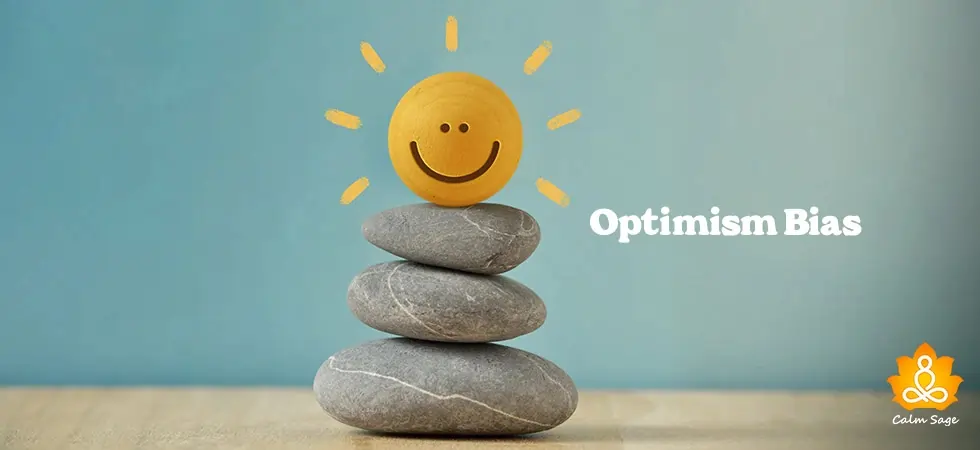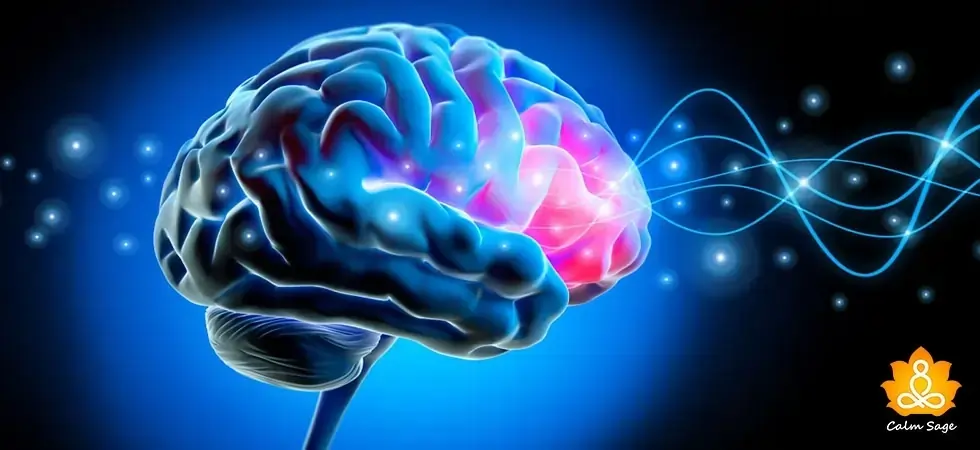Optimism Bias In Psychology: Is Over Optimism Good For Wellbeing?

Yes, the idea of positive vibes, feeling positive throughout the day, looking at the bright side, and becoming an optimistic personality can be good. But, have you ever wondered what happens when it becomes excessive? What’s the dark side of the excessive bright side?
“All positive vibes” got a lot of attention in the last few years but how optimism will unfold in the future nobody talked about it. The over-optimistic mindset is referred to as optimism bias in psychology. In this blog, we will be taking a deep look at what is optimism bias in psychology and how to overcome optimism bias. So, let’s get started!
List of Contents
What is Optimism Bias in Psychology?
Optimism bias is not something adapted by us, but it is an in-built feature in our brain known as “the illusion of invulnerability”, “personal fable”, or “unrealistic optimism.” This type of bias leads us to think that the negative consequences are not likely to happen to us.
People having optimistic bias often keep an inappropriate definition of success. Overall, optimism bias is a mistaken belief that the chances of negative events are lower and the chances of positive events are higher as compared to our peers.
| To put it in a nutshell, Optimism bias is the inclination towards estimating the higher probability of positive events and underestimating the probability of negative events. |
The concept of optimism bias was first found in 1980 by psychologist Neil Weinstein. In this theory, Weinstein described that most college students often believe that the chances of experiencing substance use or getting divorced are lower as compared to their peers. Additionally, they also believe that they have higher chances of positive outcomes.
For example, they believe that they can own their own house, earn more, and settle earlier than their peers. Other examples of optimism bias can be:
- Suppose you have just been scheduled for an interview and you didn’t prepare for the interview because you’ve been working for 10 years and the chances of being rejected are less. You conclude you will be selected based on your professional experience. In such situations, optimism bias makes you undervalue the probability of getting rejected without preparing for an interview or knowing the details of the desired company.
- Suppose you’re in an uncontrollable situation, an optimism bias mentality can help you sustain a positive mindset by ignoring the potential risks. In some extreme cases, such situations can also result in poor decision-making.
- During COVID-19, some people were aware of the potential risks but didn’t practice prevention because of optimism bias.
Why do we Develop Optimism Bias?
We all are somewhere aware of the benefits of a positive outlook; it keeps us going and provides us courage. Optimism bias in the same space provides us with motivation to try something new or difficult. As humans grow, they have the tendency to update their expectations and beliefs about the future based on positive facts instead of comparing them with negative facts.
This is how we develop optimism bias. Optimism bias is known to be effective for our overall well-being. Research shows that optimism bias can help reduce the symptoms of anxiety, stress, depression, and other mental health issues. Consecutively, optimism bias helps us to cope with situations and worry less, on the other hand, it can also result in unbiased thinking, poor decision-making skills, and rational beliefs.
The Importance of Optimism Bias
At some point, we all develop optimism bias, it’s important to know how to maintain the right balance of optimism bias. In some situations, optimism bias can be a blessing or a veto. One of the major side effects of having optimism bias is that it negatively impacts our judgment and perception levels. Additionally, it can lead to poor risk anticipation which can influence the outcome negatively.
Effects of Optimism Bias
Well, as per above mentioned example, do you think that looking overly at the bright side can help college students? No, right, the point is that having an overly bright outlook can lead to poor decision-making skills. Such effects can have direct consequences on overall well-being.
Now what can be the negative consequences of such over-optimism thinking? A College student might involve themselves in abusing substances more, they might not work hard towards their goals more, they might not save money for their future, or they might not focus on their health because they feel they’re improved versions of their peers. Well, not only negative effects but optimism bias can have positive effects too. Let’s take a look at the benefits of optimism bias in the next section.
Positive Effects of Optimism Bias
A lot of psychologists discuss the negative effects or outcomes of optimism bias. But there can be a sunny side too! Simply, if you manifest or think about good things happening to you, of course, you’ll be welcoming good things or happiness in your life. optimism bias can be fulfilling too, you can take the examples of successful people. Have you ever observed people being successful receiving more success or rich people keep on stepping on the higher ladder?
Consecutively, yes, optimism can have positive effects on overall well-being as it creates a sense of being. Being optimistic indirectly motivates you to achieve higher or pursue your goals. Do you know optimistic people are really great at taking pre-requisites or measures to reach their goals?
Now, here’s the crack… you need to know how to maintain the right balance of optimism bias. You don’t want to fall in the circle of optimism bias or neither negative bias, scroll down to the next section to learn how to avoid or overcome optimism bias.
How to Overcome Optimism Bias?
Below are listed ways that can help you overcome or avoid optimism bias and maintain the right balance of optimism bias:
1. Use statistical reasoning
In order to maintain the right balance of optimism, you don’t have to directly dwell on thinking that nothing bad can happen to you. Think rationally, use the power of decision-making skills, evaluate your past experiences, or take the help of statistical thinking (if in the workplace), and act accordingly. Stay optimistic but take a look at numbers too!
2. Accept your emotions
In the turmoil of optimism bias, people tend to suppress their emotions which can have direct consequences on their mental health. Therefore, accept your emotions, acknowledge the real issues, work on your goals, and mitigate biases rationally. Instead of focusing on the good, take a look at the negative side as well, avoid losses, and make decisions.
3. Learn from your supporters
The best way to maintain the right amount of balance is to learn from others. observe how they succeeded, observe why they failed, observe why they are not happy today, or observe what they are doing to keep themselves sane. Observe, clarify, make rational decision-making, and focus on your goals.
4. Stay grounded
There’s one effective mantra for every situation, “stay grounded.” Did you fail that task…did you succeed, did you find yourself stuck in between, or whatever the situation, stay grounded, observe people, and focus on your future? Grounding does not mean staying silent but it means staying mindful, being aware of your choices, acting rationally, and being resilient in every situation.
5. Stay compounded and make sensible choices
Compounding means analyzing the risk factors in every move you make. Look out of the box, stay consistent, and avoid things or people that hinder your positivity. Sensible choice-making should always be your tool to avoid toxic people, reach goals, and stay mindful.
6. Think out of the box
Making sensible choices, evaluating unpleasant experiences, or recalling negative occurrences can help you alleviate heuristic thinking. You don’t want to make the same mistakes twice, therefore, consider your experiences, keep making small steps, but always look at things heuristically.
Frequently Asked Questions
I hope this blog helps you understand optimism bias in psychology. Comment down and share your views on overly optimistic personality. For more such content, connect with us through all social media platforms.
Thanks for reading!




















